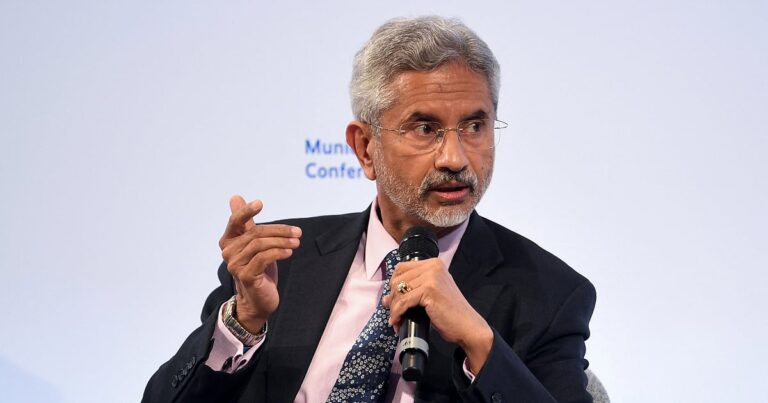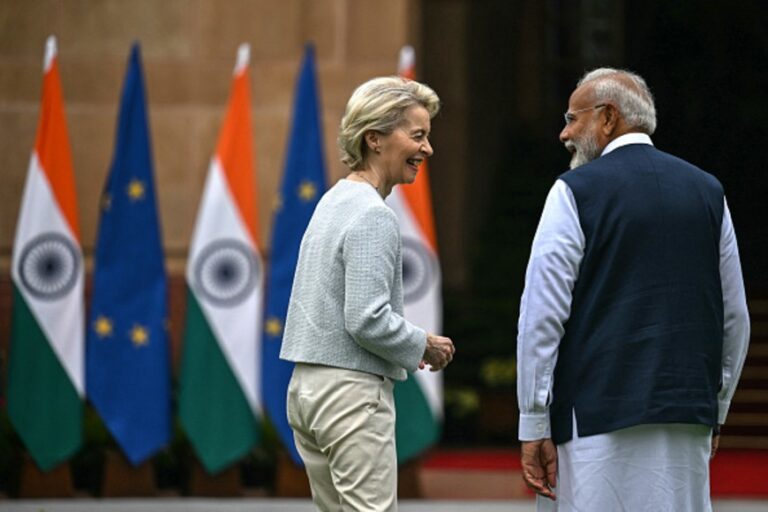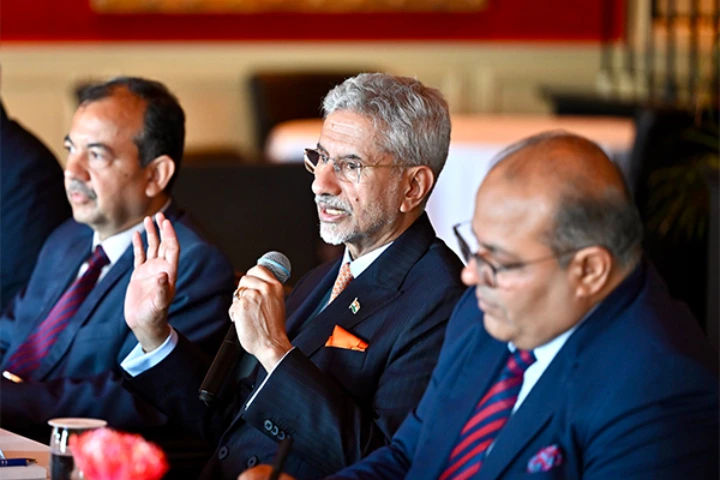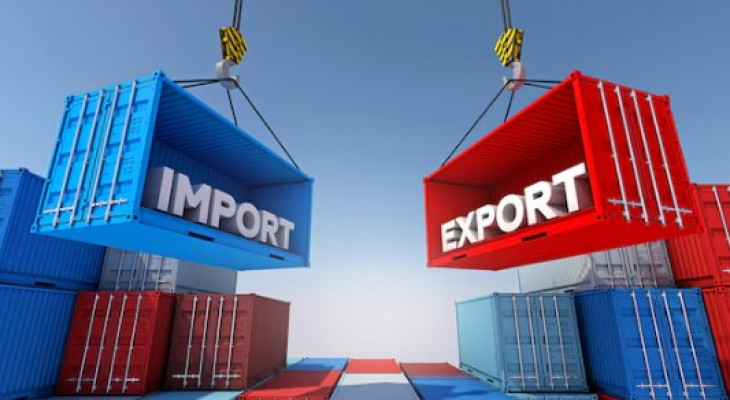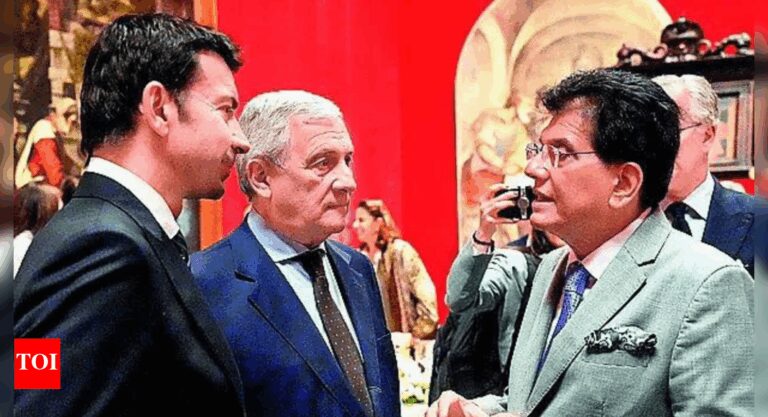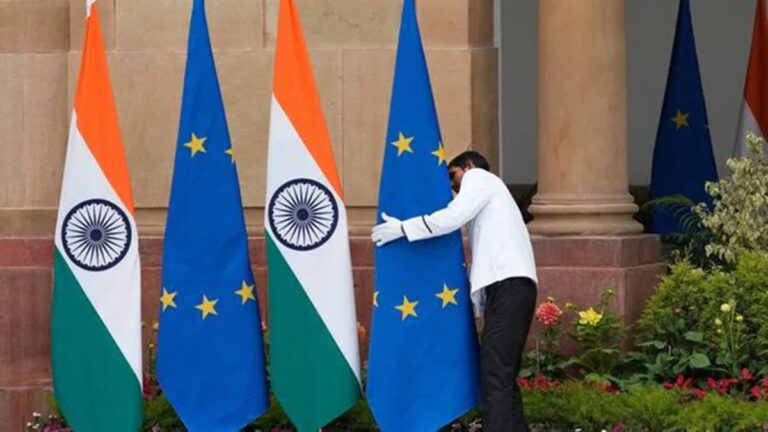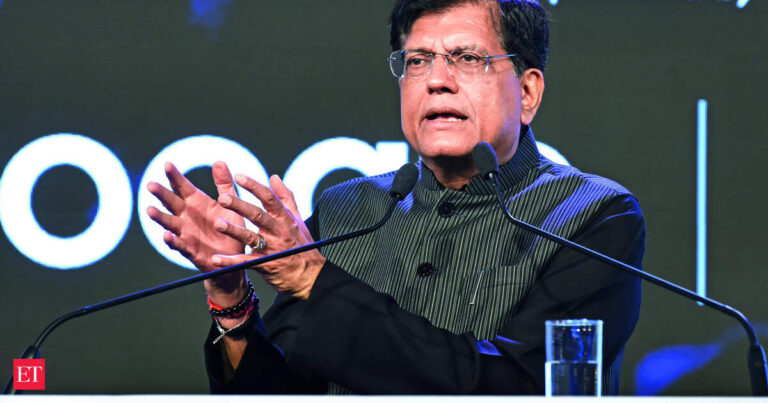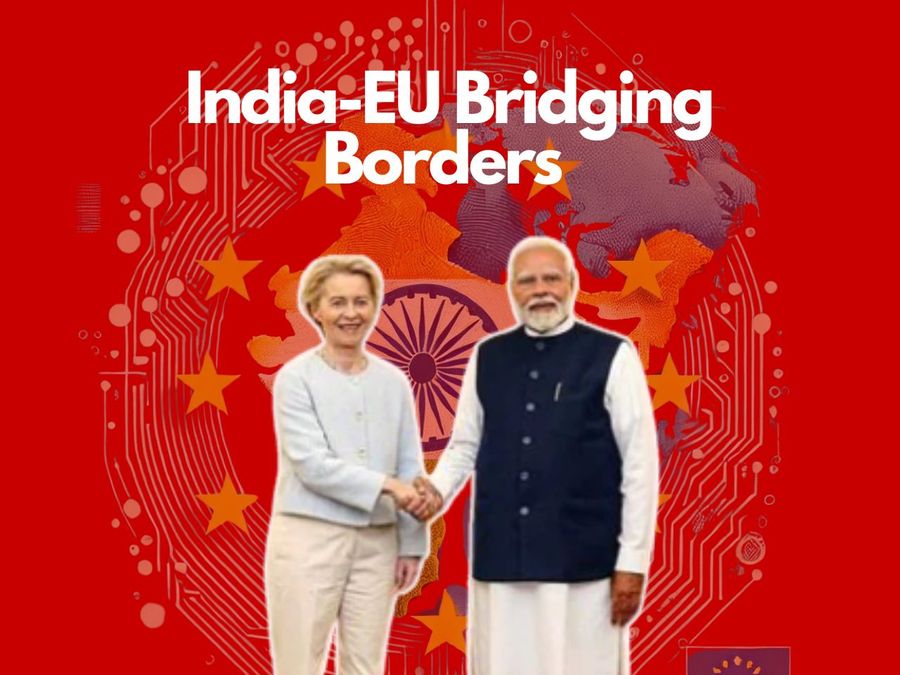
In a world marked by the change of alliances and the evolution of global power structures, the relationship between India and the European Union (EU) has reached an important step. Friday, Prime Minister Narendra Modi described the visit of the president of the European Commission Ursula von der Leyen and the College of Commissioners as “completely unique” in a historic joint declaration. His words underlined the unprecedented depth of commitment between the two parties, preparing the way for a reinforced future of collaboration.
What brought out this visit? Why is he greeted as a change of game for India-EU relations? Gallery Increase more closely the discussions with high issues, revolutionary agreements and broader implications of this historic visit.
India-EU for high-level interviews
The European delegation of great power, led by President Von Der Leyen, has embarked on crucial discussions with senior Indian officials of Hyderabad House in New Delhi. Prime Minister Modi was joined by the Minister of Finance of the Union Nirmala Sitharaman, the Minister of External Affairs S. Jaishankar and other superior ministers to deliberate in key areas such as trade, technology, investment, security and green energy.
The symbolic arrival of the European delegation in a bus fueled by hydrogen fuel cells – a collaboration between Tata Motors and Indian Oil Corporation Limited (IOCL) – underlined the emphasis on sustainable energy solutions, preparing the tone for prospective discussions.
Major ads: trade, technology and mobility occupy the stage
The talks have resulted in several major announcements, strengthening India and EU’s commitment to deepen economic and technological cooperation:
-
Finalization of a bilateral free trade agreement (ALE) At the end of the year, a long -awaited step that could unlock new opportunities for businesses on both sides.
-
Strengthening investment executives, With notable progress on investment protection and the agreement on geographic indications (GI).
-
Improved cooperation in critical sectors Like semiconductors, artificial intelligence (AI), high performance IT and 6G technology.
-
Launch of a space dialogue To facilitate more in -depth collaboration in the space sector.
In addition, PM Modi welcomed the new visa cascade regime, A policy aimed at rationalizing mobility for qualified Indian professionals, reflecting mutual recognition of the need for stronger links of people to people.
Connectivity and green energy: the future of global partnerships
One of the key themes of discussions was connectivity, in particular progress on the ambitious India-Middle East-Europe Economic Corridor (IMEC). This initiative should reshape the dynamics of global trade by creating new supply chain networks and stimulating economic integration.
In the energy sector, India and the EU announced a series of measures to conduct the green transition:
-
Host a green hydrogen forum and a Offshore wind commercial summit To explore new channels of cooperation.
-
Joint research initiatives concentrate on EV batteries, sea plastics and green hydrogen, Strengthen their common commitment to sustainability.
-
Strengthen urban development collaborations To promote initiatives of sustainable and intelligent cities.
India-EU Security and Defense Cooperation: A new chapter
Beyond economic ties, security cooperation between India and the EU should also deepen. The geopolitical tensions rising in several regions, the two parties recognized the importance of maintaining peace and stability in the Indo-Pacific region.
The European Union decision of Join the Indo-Pacific Oceans initiative was a significant highest point, marking a strategic change in the way the EU considers its commitment to the region. Other key discussions in this area included Expand cybersecurity collaborations, improve maritime security efforts and intensify initiatives to combat terrorism.
This marked visit The third trip of President Ursula von der Leyen to India, After her bilateral visit in April 2022 and her participation in the Summit of G20 leaders in September 2023. Expressing her enthusiasm, she went to social networks on her arrival, publishing: publishing: publishing: publishing: publishing: publishing: publishing:
“The hit in Delhi with my team of commissioners. At a time of conflict and intense competition, you need friends of trust. For Europe, India is a friend and a strategic ally.
His statement highlighted the growing recognition of the EU of India as a key global actor and a reliable partner in an increasingly uncertain world.
As the discussions ended, Prime Minister Modi expressed his optimism about the future trajectory of India-EU relations, declaring:
“Your visit to India has given new impetus, energy and enthusiasm to our partnership. This trip is the largest catalyst that will translate our ambition into action. I can’t wait to welcome you for the next India-UE summit.”
The two parties have undertaken to deepen cooperation in trade, investment, sustainability and security, this visit represents a Moment of watersheds in India-EU relations. The agreements concluded have prepared the land for a New era of collaboration, Whoever could redefine global economic and geopolitical dynamics in the years to come.
EU’s commitment to India no longer concerns economic ties; He extended to a Strategic partnership with global implications. Trade and technology to security and sustainability, the depth and extent of the India-EU relations have never been so promising.
While India continues to increase as global economic power, Its partnership with the European Union will play a crucial role in training the future of international diplomacy, trade and sustainable development. The historic visit of President von der Leyen and European commissioners testifies to this growing partnership – the one who promises to shape a more interconnected, resilient and prosperous world.
/tice-news-prod/media/media_files/2025/02/19/V8lKT3qi7xLfc0CkXDXA.png)
